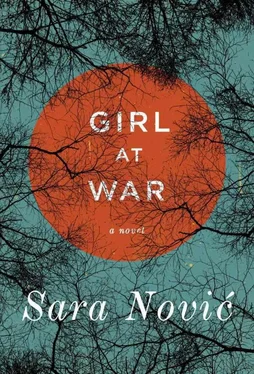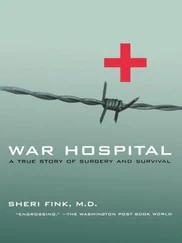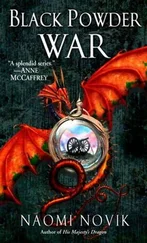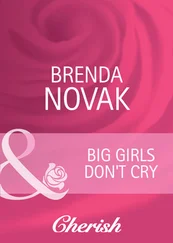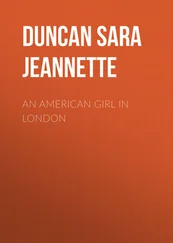When they were gone Laura would fling open a window to let out the smoke and Jack would sit on the edge of the couch, remove his glasses, and run his hands over his reddened face. Then he’d reach for his guitar and play until he returned to his normal color. Laura, who usually managed to put Rahela to bed sometime during the visit, would shoo me upstairs. I’d climb the stairs halfway, then sit and watch through the slats in the banister, trying to decipher the meaning of the visits, but all I could ever discern was an ongoing debate between Jack and Laura about whether or not asking the Uncles for help was a good idea.
I didn’t say a word for the first month of school, sat staring through class and spent recess trolling the perimeter of the blacktop until a piercing whistle demanded our return. Sometime in October, after weeks of patience, my teacher called on me to read out a paragraph from the chapter book we’d been studying. I produced a halting string of unrecognizable words and my classmates snickered. When I got home I ripped all the pages from the book and tried to flush them down the toilet.
Laura and Jack asked me if I wanted to join a soccer team. I didn’t know what soccer was but was pleasantly surprised to find out it was football when I arrived at my first practice. The excitement was short-lived, though — Americans had somehow managed to ruin the game with all sorts of rules: the coach put me on defense and told me I wasn’t supposed to cross the halfway line or try to score a goal. The neatly manicured lawn and fixed nets made my favorite game unfamiliar.
“I think I don’t like the soccer,” I told Laura.
“That’s okay,” she said. She leaned in, secretively. “I hate sports, too.” I thought about telling her that I actually liked sports but didn’t want to hazard a return to the soccer team, so I gave her a thumbs-up and we never went back.
I spent my free time writing to Luka. I told him about the strangeness of English and the desecration of football. I jotted notes on the backs of homework assignments during recess and sat in bed with sheets of loose-leaf paper, leaning on outdated volumes of World Book Encyclopedia . I couldn’t remember Petar and Marina’s address, so I wrote letters to them and sent them to Luka, too. I never heard back. Still I wrote and licked airmail stamps and pretended that Luka’s prolonged silence didn’t mean anything was wrong.
My teacher began sending home reports of my every move at school — how I spent my recesses scribbling, that I refused to socialize with other children and didn’t raise my hand in class. She sent me to the guidance counselor. Jack and Laura worried, and I felt awful, too, the sleepless nights getting me nothing but bluish circles under my eyes. Laura offered to take me to a doctor who she said could “look into my head” and help me feel better, but my grip on English figures of speech was tenuous and the thought of a doctor opening my brain was terrifying.
I knew my time for grieving was running short. People were getting impatient. It wasn’t their fault. It was near impossible, even for me, to contain Gardenville and Croatia in the same thought. So a few weeks later, when we were assigned a project about hometowns, I made a poster of New Jersey, transplanting the least offensive of my childhood memories into the apartment where I’d first lived with Jack and Laura, before the new house was finished. My teacher, who knew better, rewarded the lie with a good grade.
The more I lied, the closer I came to fitting in. Sometimes I even believed myself. People assumed I was just bookish or shy, and I was, or had become so. Nobody in the new neighborhood had ever seen Jack and Laura without Rahela and me, and had no reason to think we were anything other than a biological family. I threw out the book of news clippings. I stopped writing to Luka.
—
For the first two years I was away at college, my family had left my room alone. Now, slowly, others’ unwanted belongings were finding their way in — photo albums, Laura’s broken sewing machine, and clothes to be donated to the Goodwill formed piles in the corner behind my door. It was unfair of me to expect them not to use a perfectly good space, I knew, but I still felt a sense of loss for the place that had once been only mine. I surveyed the rest of the room, which looked the same — single bed pressed against the windows, shelves filled with my first books and a series of glass fishbowls containing the seashell collections I’d amassed from summers at the Jersey shore. On the wall hung a sequence of photos of Rahela, Laura, Jack, and me on Rahela’s fifth birthday at Disney World, and posters of terrible punk-noise bands I’d gone to see at the Electric Factory on Friday nights when I was in high school.
The remnants of a flower stencil peeked out from behind my desk, and I smiled with the thought that Laura and my mother might have bonded over their mutual distaste for my tomboyishness; Laura had put the blossoms on the wall and I’d promptly pushed my desk against the spot. When I’d chosen a denim comforter for my bed she’d sewn pink rosebuds in rows up the seams, and whenever she left the room I turned the comforter over to hide the flowers. Now, the roses were faceup again.
“Ana’s home, Ana’s home!” I heard Rahela shouting downstairs amid the heel-click of Laura’s cowboy boots. I slipped the envelope of my past life under my mattress and went downstairs.
“Hey, baby!” said Laura.
“Hi, Ma.”
The first time I called Laura “Mom” was an accident. I’d been playing with Rahela in the driveway when she fell and skinned her knee. The wound was filled with gravel and bled a lot and I scooped her up and ran inside, calling “Mama! Mom!” I found Laura upstairs folding laundry, the cordless phone tucked between her shoulder and chin. When I entered the room saying, “Mom, Rahel — Rachel got hurt,” she raised her head and let the phone drop.
“Sue, I have to call you back,” she said loudly at the phone now on the floor. I handed her Rahela and we went in the bathroom and bandaged her up, and Laura didn’t mention it, though she smiled at me for the rest of the day, as if she was wondering whether or not I had realized what I said. I had, and figured there was nothing I could do to take it back now. But for years onward, each time I said “Mom” or “Dad” a silent prefix of “American” existed in my mind. They were my American parents, and the distinction made me feel less like I was forgetting the other set I’d abandoned in the forest.
“I didn’t know you were coming home. I was just in town. I would’ve gotten you from the train.”
“I needed the walk.”
“Oh gosh, that’s right. How was your speech?”
“What speech?” Rahela said.
“Ana was giving a very important presentation at the United Nations,” said Laura. “Tell me everything! Did you take a picture?”
“Take a picture of myself giving a speech? No. It was no big deal.”
“Maybe if you had longer arms,” said Rahela.
“Huh?”
“Then you could take a picture of yourself.”
“But she wouldn’t have because she never humors her mother,” said Laura, feigning exasperation.
“You can have my name tag.” I dug the crumpled guest pass out of my pocket.
“Take what I can get,” Laura said, and stuck it to the fridge.
—
At dinnertime we met Jack for pizza and bumper bowling.
“What are you doing home, girlie?”
“Just visiting.”
“Remember, Ana was giving that speech today,” Laura said.
“I didn’t forget,” said Jack. He pulled me into a bear hug, and I liked that I would probably always feel little inside his embrace. “How was it?”
Читать дальше
